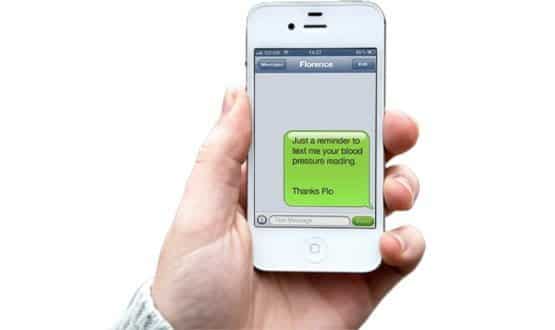33,000 patients go with the Flo

A telehealth text messaging system developed in Stoke has been adopted by more than 70 health and social care services across the UK.
Florence Simple Telehealth System, or Flo, is now used by around 33,000 patients across the UK, mainly with long-term health conditions.
The methodology behind the system is also being adopted in the US by the Veterans Health Association, where it is call Annie.
Flo is an interactive free texting service to provide support and advice for patients to manage their own health conditions.
Philip O’Connell won NHS Inventor of the Year in 2012 for coming up with Florence while working in Stoke and Simple Telehealth has been created as a not-for-profit enterprise to support development of the system and create a user community.
Senior specialist at Simple Lisa Taylor said Flo has always been an NHS invention, driven by clinicans to encourgae patient self-management.
An early clinical trial of the system, supported by the Health Foundation, showed the positive impact Flo had on patients with hypertension and chronic kidney disease and its use grew from there.
It has been adopted by more than 70 health and social care services across the UK after being embraced by NHS24 in Scotland and NHS Wales as well as clinical commissioning groups around England.
Taylor said the simple technology of text messaging proved the most effective and convenient way to engage with patients. The idea is that Flo acts like another human via the language used.
“It was essential that patients engaged with Flo as a persona, patients say she behaves like a real person so the psychology there is different,” she explained.
Interactions are designed locally by clinical teams who decide at what points they want Flo to interact with patients and what she should say in response to particular readings.
Flo can also give advice and encouragement for behaviour change and, if monitoring a mental illness, will ask questions about a patient’s mood. Taylor said the onus remains on the patient to act on any advice given.
All of the readings and responses are available to view by a patient's lead clinician via a website and patients control who else can have access.
Various studies have shown patients feel more in control of their health and prefer sending readings via messaging rather than having to go into their GP practice, Taylor said.




